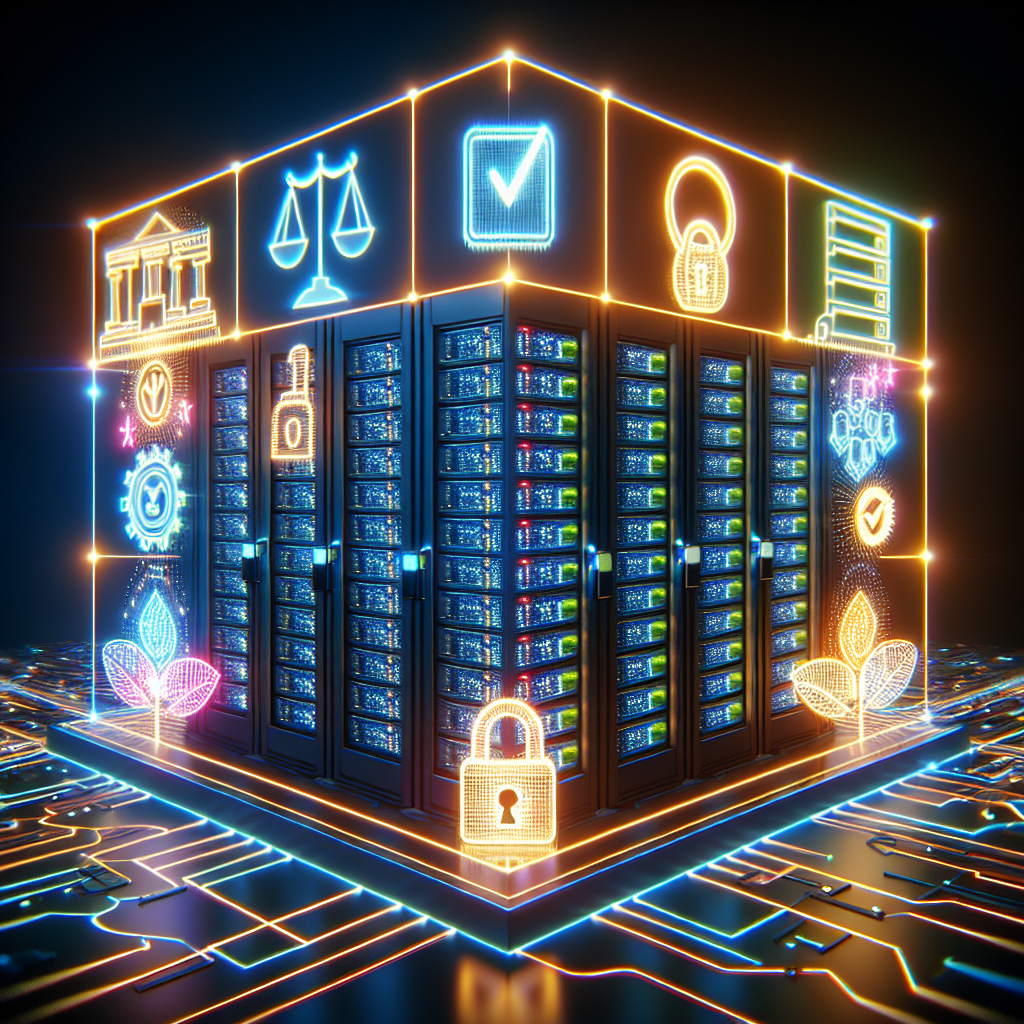Data Center Compliance: Key Regulations and Standards You Need to Know
In today’s digital age, data centers play a crucial role in storing and processing vast amounts of information for businesses and organizations. With this responsibility comes the need to adhere to strict regulations and standards to ensure the security and privacy of the data being stored. Here are some key regulations and standards that data center operators need to be aware of:
1. General Data Protection Regulation (GDPR): The GDPR is a regulation enacted by the European Union that governs the processing and storage of personal data of EU residents. Data centers that handle personal data of EU citizens must comply with GDPR requirements, including implementing data protection measures, obtaining consent for data processing, and notifying authorities of data breaches.
2. Health Insurance Portability and Accountability Act (HIPAA): HIPAA is a U.S. law that sets standards for the protection of sensitive patient health information. Data centers that store or process healthcare data must comply with HIPAA regulations, including implementing physical and technical safeguards to protect data, conducting risk assessments, and ensuring the confidentiality of patient information.
3. Payment Card Industry Data Security Standard (PCI DSS): PCI DSS is a set of security standards established by major credit card companies to protect payment card data. Data centers that handle credit card information must comply with PCI DSS requirements, such as implementing firewalls, encrypting data, and regularly monitoring and testing security systems.
4. ISO 27001: ISO 27001 is an international standard that sets out the requirements for establishing, implementing, maintaining, and continually improving an information security management system. Data centers that adhere to ISO 27001 are able to demonstrate a commitment to protecting the confidentiality, integrity, and availability of information.
5. SOC 2: SOC 2 is a framework developed by the American Institute of CPAs (AICPA) to assess the security, availability, processing integrity, confidentiality, and privacy of a service organization’s systems. Data centers that undergo a SOC 2 audit can provide customers with assurance that their data is being handled securely and in compliance with industry standards.
In addition to these regulations and standards, data center operators should also be familiar with local laws and regulations that govern data privacy and security in their respective jurisdictions. It is essential for data center operators to stay up-to-date on changes in regulations and standards to ensure compliance and mitigate the risk of data breaches or regulatory penalties.
In conclusion, data center compliance is a critical aspect of managing and operating a data center. By understanding and adhering to key regulations and standards, data center operators can ensure the security and privacy of the data being stored and processed, build trust with customers, and protect their reputation in the industry.


Leave a Reply